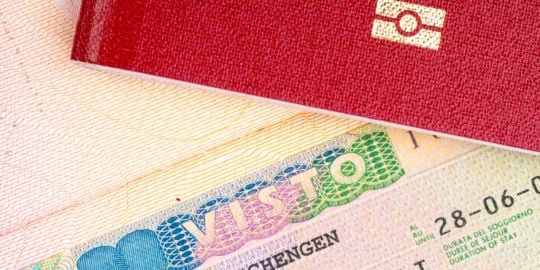Healthcare in Italy

Italy has a fantastic healthcare system but the standard of healthcare varies from region to region. This is because public healthcare is managed on a provincial, rather than a national level, so the treatments and services offered varies greatly. Private healthcare is a popular alternative for many expats.
The National Health Service
Servizio Sanitario Nazionale, or 'SSN', is Italy's national health service, which provides residents with free and low-cost healthcare which covers GPs, treatments, subsidised medication, and specialist care. This is funded through national income taxes and regional VAT, and generally provides a very high standard of care. Note that all expats living in Italy with a residency permit are entitled to the same treatment as Italian citizens but you will need to register with the SSN in your local district at your local health authority (Azienda Sanità Locale). Documents required are the following:
- A valid ID card,
- your tax number,
- A valid letter of employer or employment contract
- Residence permit
Once you have registered, you will receive your La Tessera Sanitaria health insurance card, thanks to which you can get free healthcare from a doctor or an alternative health care provider.
Important:
If you have a fixed-term contract and you are not yet a permanent resident in Italy, your Tessera Sanitaria and your access to care will only be valid throughout the duration of the contract. When you get a permanent job, you will have to renew your access to care every year, until you become a permanent resident (after 5 years of residence in Italy).
Good to know:
Expats who are EU nationals can use their European Health Insurance Card (EHIC) to gain access to public healthcare services in Italy.
Private healthcare (Assicurazione sulla salute) in Italy
Private procedures in Italy can be extremely expensive since the Ministry of Health sets a minimum charge for all operations in this sector. It is therefore advisable to take out health insurance if you wish to receive private healthcare, especially if your employer doesn't provide health insurance. Despite the additional cost, there are many advantages to receiving private healthcare, including less waiting time, and greater choice of facilities and specialists. It is advisable to avoid using a company which reserves the rights to cancel a policy when you have a serious illness or when you reach a particular age as it can be difficult to find alternative cover. Some of the largest insurance companies in Italy include Europa Assistance, Filo Diretto, Pronto Assistance, and Sanicard.
You can also opt for international health insurance before moving to Italy. Some of the leading international health insurance providers are:
- Allianz Care
- April MTC (My Travel Cover) - for less than 12 months cover
- April MHI (My Health International) - for more than 12 months cover
- Cigna Global
Consider having a look at their offers according to your needs and get a free quote on Expat.com's Health Insurance for expatriates in Italy page.
Good to know:
You should check with your employer to see whether they finance private healthcare for their employees.
Prescriptions and medicines in Italy
Under the SSN, medication prescribed by a GP is provided at a subsidised rate or free of cost. For example, you will need to make a co-payment for prescription medicines like antibiotics, insulin, and hormone treatments. Over the counter medicines such as paracetamol and ibuprofen are full-price but are taken care of by Tessera Sanitaria.
Emergencies in Italy
For emergency medical services, you can dial 118 but English-speaking operators might not be available. If you don't speak enough Italian to communicate in such as emergency, you can call 112, an emergency number serving all of Europe. The arrival of emergency services in life-threatening situations can vary from eight minutes in cities to a maximum of 20 minutes in rural areas.
Finding a doctor in Italy
You may have some issues finding a doctor who can speak English in your local area. It's worth checking with your local embassy and the Medici Genericini in the yellow pages.
Most surgeries operate from Monday to Friday, with a first-come-first-served policy rather by appointment.
Emergency care in Italy
Emergency healthcare is available to everybody in Italy, regardless of whether they have state health insurance. You should dial 118 if you are unable to get to the hospital yourself.
Specialist care in Italy
SSN provides access to specialist care delivered through public hospitals, although you will likely need to pay a small fee for examinations. You will also need a referral from your GP.
Good to know:
Students can enrol in the SSN system on a voluntary basis by paying an annual fee of around â¬150.
Useful links:
Ministry of Health - Health System
Database of Health Facilities
European Health Insurance Card
Stranieri in Italy









